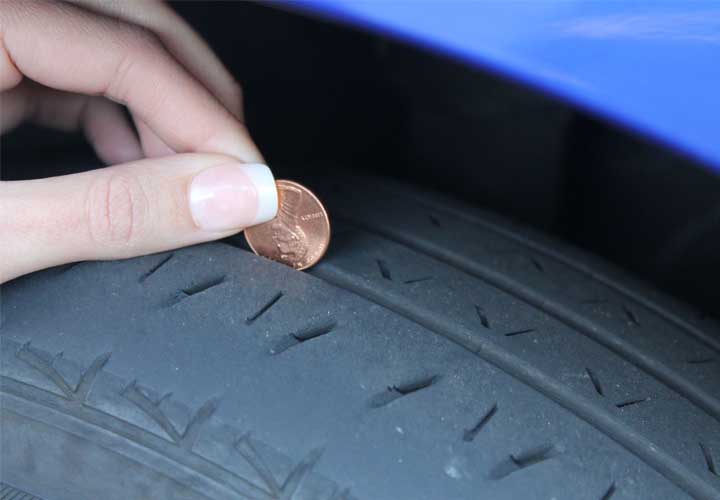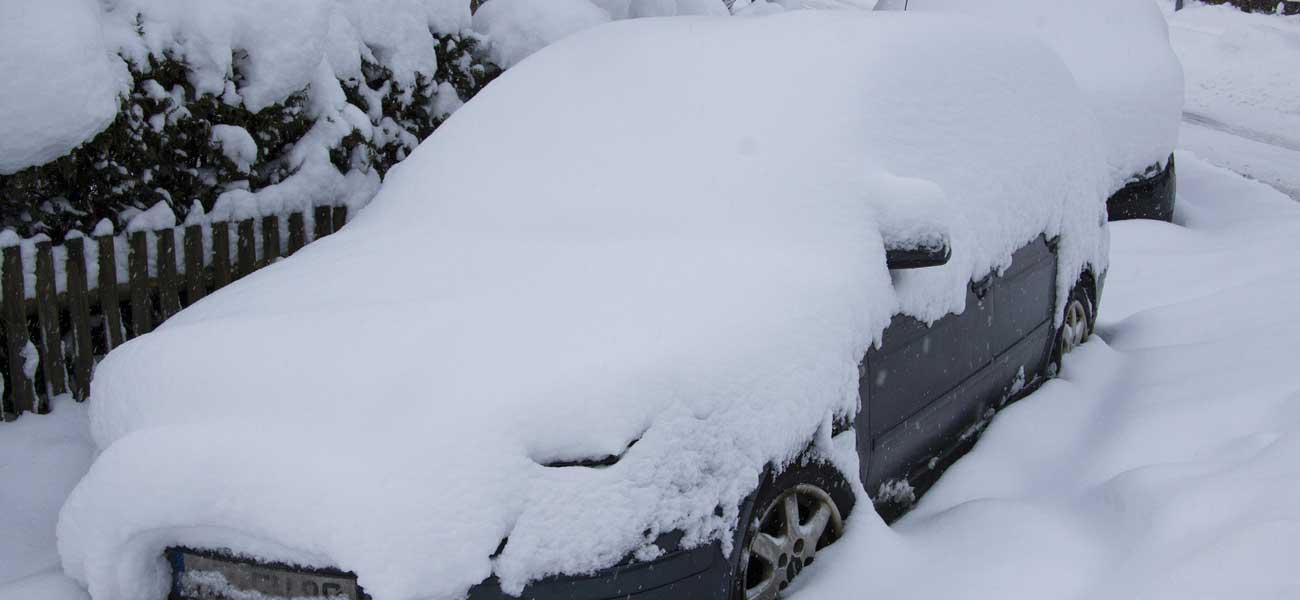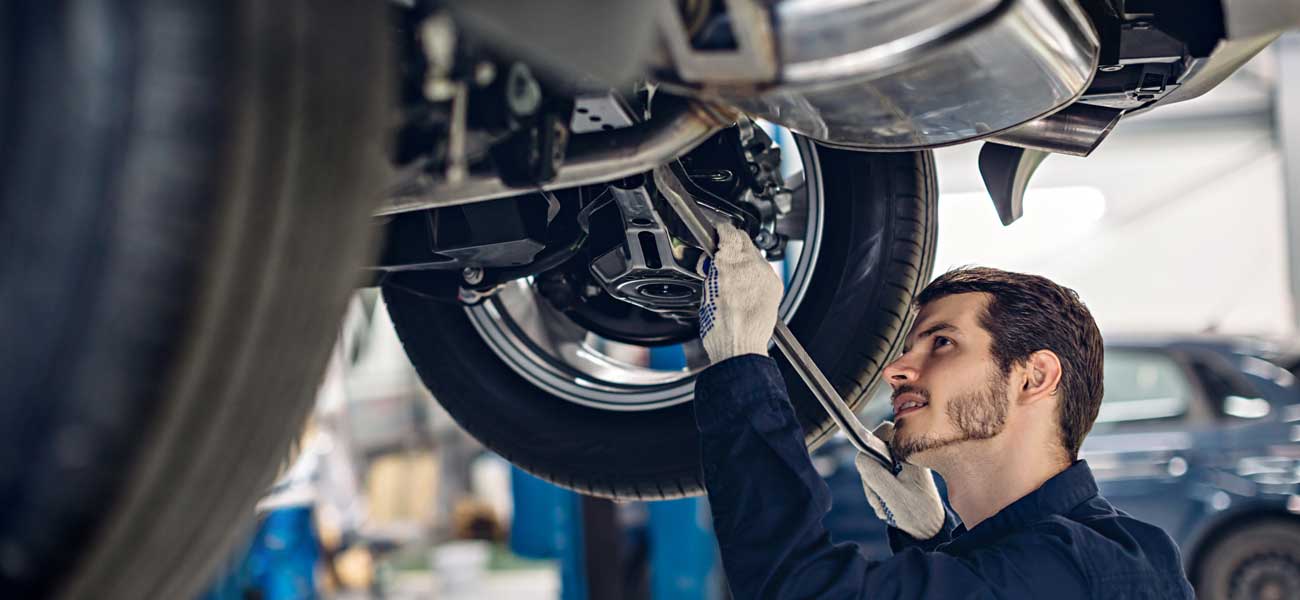One way to ensure you stay safe on the road is to make sure your vehicle is in top running condition. In today’s road safety feature we’re going to look at how you can maintain your car to help you stay safe on the roads.
If you’re leasing a vehicle then you might have a maintenance package but this doesn’t mean you shouldn’t still take steps to keep your car as roadworthy as possible. Especially when there are several easy checks and steps you can take. In fact, some maintenance agreements ask you to still ensure basic checks like the oil level are done by the driver.
Checks You Can Do to Keep Your Car Safe:
There are a number of checks you can easily do yourself at home to help keep your vehicle in top condition.
These include:
- Tyre Tread – check your tyres are within the legal limit of tread which is a minimum of 1.6mm in a continuous band around the centre 3/4 of the tyre and around the entire circumference of the tyre.
- Tyre Pressure – you should regularly check your tyre pressure is at the recommended level for your vehicle, which will be in the vehicle manual or you should be able to find it on the manufacturer’s website. You should always check the tyre pressure before a long journey.
- Car Lights – you should regularly check all of your vehicle’s lights are working. This includes the headlights, brake lights, fog light, indicators and, if they are turned on, the daytime running lights. You can do this by reversing / facing a reflective surface or window and turning the lights on or asking another person to check when the vehicle is running.
- Fluids – There are a number of fluids that you will need to check in your vehicle which include: the oil, water, screenwash and engine coolant. You should regularly check all of these and top up as necessary.

- Windscreen – you should regularly check your windscreen for any chips. You will need to repair any crack or chip larger than 40mm anywhere on the windscreen, and any bigger than 10mm in the zone directly in front of the driver as otherwise the vehicle will fail its MOT. However, we recommend that you get any chip or crack repaired as soon as possible, to avoid it getting any larger.
- Windscreen Wipers – another visual check you should do is to check your windscreen wipers. These can become worn and if they do will need replacing.
- Warning Lights – when you first get your vehicle you should read the manual to make sure you know what each of its warning lights mean. If any light comes on you should immediately check this and take appropriate actions, some you may be able to resolve yourself and others you may need to take the vehicle to be looked at by a mechanic.
- Car Battery – If you don’t use your car regularly then your battery will degrade and go flat. We advise taking your vehicle out at least once a week to ensure this doesn’t happen. If your battery goes flat then you can jump start, however this will put additional strain on the battery and may damage the engine management system and other delicate electronics.
- Engine Air Filter / Oil Filter – Both filters should be changed regularly, and will usually be done as part of your regular service. However, they are easy enough to change and you can do this yourself at home if needed.
- Spark Plugs – Petrol engines might need the spark plug replacing, this is something that most mechanics can do but if you are confident with car maintenance then you might want to replace them yourself. If you are ever unsure we advise seeking professional guidance and not attempting the work yourself.
- Cleaning Your Car – you should regularly wash your vehicle. This prevents build up of grit, especially in winter months, which can accelerate wear to the car, it also cleans off bird droppings which can damage paintwork. Not only does this help maintain your car bodywork but also keeps it looking its best.
- Keeping Your Fuel Up – if you are able to keep your fuel about the quarter line this will prevent sediment and particles from the bottom of your tank which could clog other parts of the vehicle.
Winter Car Care:

During the winter there are some additional steps you might want to take to keep you safe on the roads, along side the above.
- You should always clear your windscreen, rear and side windows of any ice before driving off.
- If it snows you should clear any large build up from the top of your vehicle as well to avoid it falling down when you are in motion and blocking your view or creating a hazard for other drivers.
- Make sure the windscreen / rear window are fully demisted and you have a clear view through both before setting off.
You might also want to keep a winter breakdown kit in your car, in case you do breakdown in harsh weather. This kit would usually include a shovel, torch, blanket, hi-vis jacket / vest, screenwash, food and drink supplies, scraper and de-icer but you can adapt the kit to suit your needs or the areas you drive in.
How to Keep Your Car in Top Condition During a Pandemic:
Most people have driven a lot less this year than in previous years, and with lockdowns, self-isolation periods and generally not driving as much or as far some cars are sitting unused for days if not weeks between drives.
If you are someone who is going longer than usual between driving or who hasn’t been using your car then you might want to follow our tips below to ensure it’s still safe for the roads when you get back on them.
- You should take your car out at least once a week, letting it run for at least 15 minutes to prevent the battery from going flat.
- We also recommend moving the vehicle when you are letting it run to prevent the brakes from seizing which can happen if you leave it parked for too long.
- If leaving the vehicle parked for long periods of time then you should make sure it is parked in as safe a position as possible. If you have off-road parking or a garage then you should utilise this.
- When leaving your vehicle parked for a while you should make sure your radio and lights are turned off to prevent these running the battery down.
- Before going back out onto the road you should check your tyres for any cuts and bulges.
- You should also check your tyre pressure to make sure that this is in line with the manufacturers recommended pressure.
- If you vehicle has been parked outside for a period of time without use then you should check to make sure that no animals have been nesting near or under the vehicle.
- If you have a diesel vehicle you should check the diesel particulate filter as this can fill up quickly if the car is unused, as the regeneration of this usually occurs when driving on a faster road for around 10 to 15 miles.
- You should check all of your vehicle’s lights are working. This includes the headlights, brake lights, fog light, indicators and, if they are turned on, the daytime running lights. You can do this by reversing / facing a reflective surface or window and turning the lights on or asking another person to check when the vehicle is running.
- There are a number of fluids that you will need to check in your vehicle which include: the oil, water, screenwash and engine coolant. You should check all of these and top up if necessary, before going out if your car has been stationary for a while.
- You should regularly check your windscreen for any chips. You will need to repair any crack or chip larger than 40mm anywhere on the windscreen, and any bigger than 10mm in the zone directly in front of the driver as otherwise the vehicle will fail its MOT. However, we recommend that you get any chip or crack repaired as soon as possible, to avoid it getting any larger.
- Keep your car clean, making sure the interior is tidy and any personal items removed and if sat outside for a long period of time the exterior is also cleaned regularly.
When to Take Your Car to a Mechanic:

- You should take your vehicle to a mechanic regularly for servicing, sticking to the schedule your manufacturer advises.
- If your car comes up with a warning light that you are not able to resolve you should also take it into a garage.
- If you have any concerns about your vehicle then you should take it into a garage to be looked at by a professional.
If you have any of your own top tips for maintaining your car to keep it road worthy and safe let us know in the comments below.









Leave a Comment